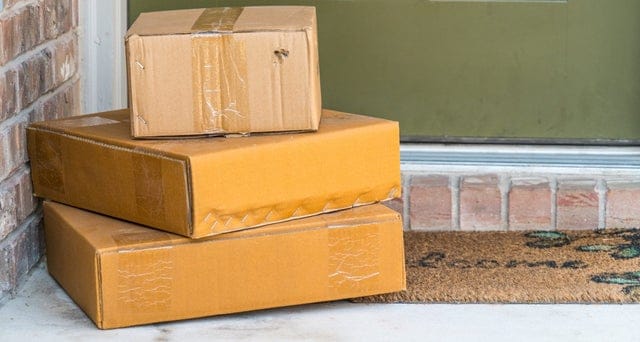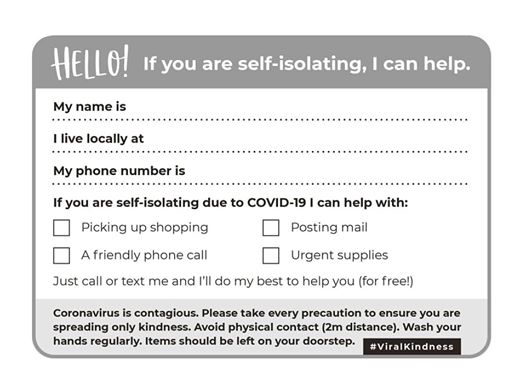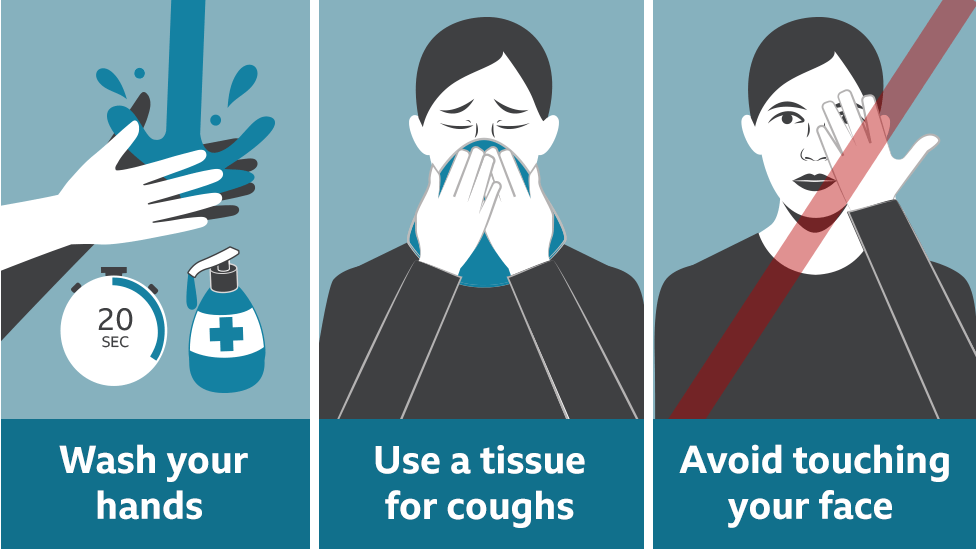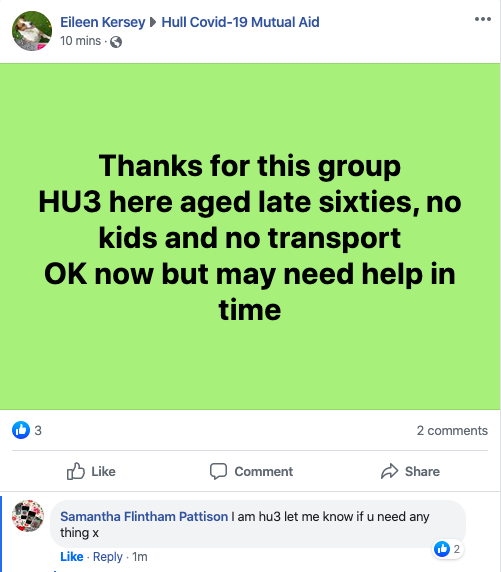United Kingdom (London)
“No matter what we look like, where we live, or how much money we have, getting sick reminds us that at our core we’re all just human.” – Anna Vickerstaff
Projects like informal network COVID-19 Mutual Aid UK prove that people are inherently good. An amazing 2.5 million volunteers people have pledged their support at the time of writing as ‘mutual aid groups’ explode across the UK.
Communities are pulling together in the face of the coronavirus pandemic. Anyone can set a ‘mutual aid group’ – creating a platform for people to help others locally, whether it be for people to help others who are self-isolating to get food by going shopping or any number of other needs.
More than 900 community groups were set up through Facebook within just a few days, with more being added by the hour.

Jamie Potter is part of the grassroots movement and set up the Hull Covid-19 Mutual Aid group on Facebook. He saw more than 400 people join up in the first 24 hours. Jamie insists that the city-wide group he has set up has already spawned more direct help locally and has also been able to tackle issues like the impact of panic buying in supermarkets.
“People are also starting up more specific hyperlocal WhatsApp groups that are related to streets and neighbourhoods because my group is for the whole entire city.
“On a local level, they are distributing flyers with contact numbers on for people who are happy to make themselves available to help others.
“We know that there has been a shortage of bottled milk for babies in the supermarkets so one member has even offered to share spare breast milk for any mother who gets caught out. These things are starting to come through now.”
COVID-19 Mutual Aid UK is advising that people keep groups small and use Facebook and WhatsApp communication to ensure that needs can be met quickly. They are also sharing leaflet templates (here and here) to allow local groups to get word out swiftly.

Anna Vickerstaff, one of the coordinators of the national network, said: “In every country it’s the old, the sick and those already struggling who will be affected worse. That’s why we set this network up – because we want to make sure that no one in our communities is being left to face this crisis alone, and because we want to try and redress some of the serious inequalities this outbreak will expose.”
When the UK Government ramped up its response, urging people who can work from home to do so, it also advised those aged over 70 years of age should self-isolate for three months to avoid catching the coronavirus.
There has been little indication of the government formally setting up local support groups but Jamie believes that the community-based response through Mutual Aid Groups would have happened either way.
“This shows that people are inherently good. That is something that I believe in and it’s a part of my politics that people should help each other,” he told The Big Issue. “It’s encouraging to see that, in times like this, people do pull together and are willing to go out of their way to help people who may not be in a position to help themselves.
“I think that this has risen out of the vacuum of the Government setting something up more formally. But I also think that people just like to help each other and, if the Government had set something up, this kind of thing would have been happening anyway. It’s part of human nature to want to do that.”

AtlasAction: Find your local Mutual Aid Group or how to set one up here.
Project leader
Anna Vickerstaff, Coordinator
Support the Atlas
We want the Atlas of the Future media platform and our event to be available to everybody, everywhere for free – always. Fancy helping us spread stories of hope and optimism to create a better tomorrow? For those able, we'd be grateful for any donation.
- Please support the Atlas here
- Thank you!



